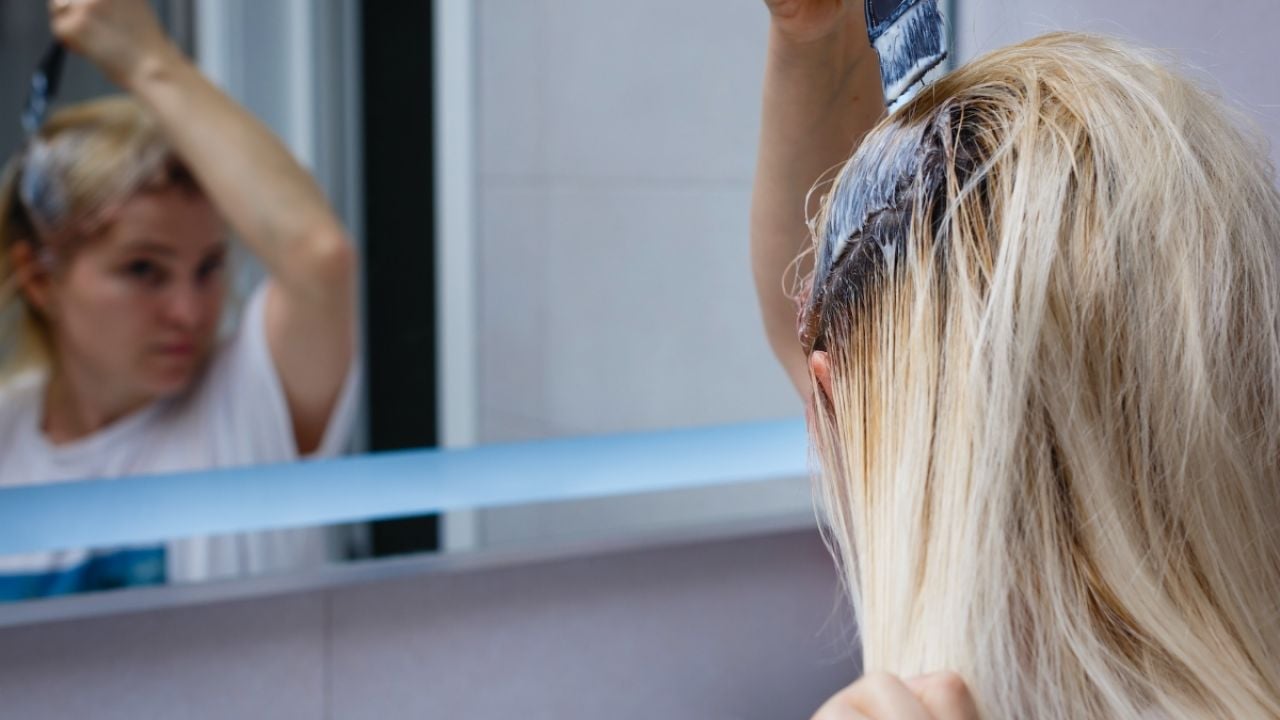
Americans are stocking up on hair dye, according to a new report by NPR. The article lists some of Nielsen's data about what Americans were buying the week ending March 21. Sales for hair dye increased by almost 20 percent from last year.
This spike is not unexpected. As of March 30, at least 29 states, 79 counties, 14 cities and one territory have issued orders to stay at home, instructing nonessential businesses to close up shop until further notice. This includes salons and spas.
Consumers planning to color their hair at home should take care to read the ingredients. In December, researchers at the National Institutes of Health, or NIH, found chemicals commonly used in hair dyes and chemical hair straighteners were linked to an increased risk of breast cancer.
The study, published by the International Journal of Cancer, found that participants who regularly used permanent hair dye in the year before the study’s start were 9 percent more likely to develop breast cancer than women who did not. But the risk from permanent dye was more than six times greater in black women than in white women who participated in the study.
In August 2017, a study published in the American Journal of Obstetrics & Gynecology found that women of color use more beauty products and are disproportionately exposed to worrisome chemicals compared to white women. The researchers called on health care providers to become more aware of how exposure to environmental chemicals may affect the reproductive health of vulnerable populations.
This complemented an EWG analysis of more than 1,000 personal care products marketed to black women that found a smaller share of hair and beauty products marketed to this demographic scored low in potentially harmful ingredients when compared to products aimed at the general public in the Skin Deep database.
Some of the commonly used ingredients in hair straighteners and dyes that have been linked to serious health impacts include:
- p-Phenylenediamine, and other phenylenediamines, is a common ingredient in hair dyes and a strong skin sensitizer that has been shown to induce tumors in the mammary gland of rats.
- Resorcinol, used in hair dyes, can affect the proper functioning of hormones and trigger allergic reactions.
- Formaldehyde, used in high concentrations in certain keratin hair straighteners, is a known human carcinogen.
The federal law governing the safety of personal care products has remained largely unchanged since 1938. Currently, there are no requirements for safety testing of ingredients before they are used in products that we routinely bring into our homes. The current law leaves the federal government powerless to screen personal care products for chemicals that have been linked to harm.
Last week, EWG board member Michelle Pfeiffer applauded Rep. Frank Pallone (D-N.J.) for taking the first serious action toward updating the woefully outdated law governing the cosmetics industry. On March 11, the House Energy and Commerce Committee’s Subcommittee on Health approved landmark cosmetics safety legislation, the first step toward finally protecting consumers from potentially toxic chemical ingredients in personal care products.
The Cosmetics Safety Enhancement Act of 2019 (H.R. 5279) would modernize how the Food and Drug Administration regulates personal care products by requiring companies to substantiate the safety of their products and subjecting chemicals of concern to FDA review. The bill would also require companies to report adverse health reactions, like burns, and provide more transparency about ingredients on their labels.
And in February, the California State Assembly reintroduced the Toxic-Free Cosmetics Act, A.B. 2762. If passed, the law would ban 12 toxic ingredients, such as mercury and formaldehyde, from the beauty and personal care products Californians use every day.
EWG offers tools for consumers looking for healthier alternatives. When shopping for personal care products, use Skin Deep® to look up questionable ingredients. And consult EWG VERIFIED™, which was created to help shoppers quickly and easily identify products that meet EWG’s strictest health and transparency standards.
For updates on cosmetics legislation, please visit: https://www.ewg.org/cosmeticsnews.



